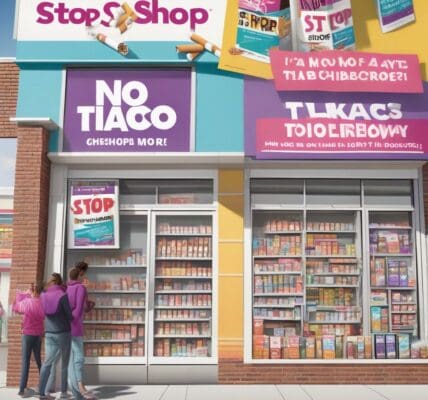In a notable shift blending convenience and efficiency, Illinois is introducing “Fast Lane” kiosks across select grocery stores, allowing consumers to run multiple errands in one location. Secretary of State Alexi Giannoulias recently unveiled this pilot program at various Mariano’s, Jewel-Osco, Kroger, and Meijer outlets, marking a significant step towards modernizing public services.
This initiative enables residents to renew their driver’s licenses or purchase vehicle stickers during their grocery shopping trips, effectively reducing the need for a separate visit to the DMV. The kiosks print vehicle stickers on the spot and provide temporary documentation for license renewals. An official card arrives in the mail within 15 business days, streamlining a process typically associated with long wait times and inconvenience.
The convenience of these kiosks is underscored by the relatively modest transaction fee of $4.95. Giannoulias stated, “Fast-Lane kiosks offer added convenience for Illinois drivers who now have the ability to renew their driver’s license or purchase a vehicle sticker while they’re running errands or buying their groceries.” This statement highlights the potential for greater efficiency in daily life, particularly for busy families.
Mariano’s division president, Michael Marx, reinforced this sentiment by expressing excitement for the new service, indicating that the kiosks would enhance the shopping experience. “At Mariano’s we are always looking for innovative ways to serve our customers, and these kiosks offer incredible convenience,” he stated. Such comments reflect a broader trend in the grocery sector—grocery retailers continuously seek innovative solutions to enrich customer experiences and improve service delivery.
As part of this pilot program, plans are already in place to expand the kiosks’ capabilities, including adding more languages beyond English and Spanish. This move is deliberate, aiming to make the service accessible to a broader demographic, thus fostering inclusiveness within the community.
The success of Illinois’ initiative is not isolated. Other states have previously introduced similar kiosks, notably in North Carolina and Georgia, where grocery chains like Harris Teeter and Kroger have successfully implemented such services. This collective effort illustrates a nationwide shift toward integrating essential public services into everyday commerce, painting a bigger picture of how retail spaces are evolving to meet customer expectations.
From an e-commerce and conversion optimization perspective, this initiative is particularly interesting. By merging public services with grocery shopping, retailers not only drive foot traffic to their stores but also enhance customer loyalty. Shoppers who appreciate the convenience of combining errands are likely to return, thus increasing both transaction frequency and overall spend.
Importantly, the introduction of services like these can influence customer behavior and psychology. The perception of convenience—and the associated time savings—can significantly increase satisfaction and even encourage spontaneous purchases. Retailers stand to gain a competitive edge simply by making shopping a hassle-free experience.
Moreover, as technology and consumer preferences evolve, the integration of kiosks aligns perfectly with current trends emphasizing self-service and digital solutions. Many consumers are now accustomed to digital transactions across various sectors; therefore, being able to utilize these kiosks aligns with their expectations of efficiency.
As this pilot program proceeds, industry observers will be keen to assess its impact. Retailers will likely analyze consumer uptake and usage patterns to understand how best to incorporate these kiosks into their service offerings. The potential for expanded services may additionally lead to partnerships with other state agencies, further enhancing the grocery shopping experience.
In conclusion, Illinois’ rollout of “Fast Lane” kiosks is an exemplary case of how grocery retailers can innovate to better serve their customers. By enhancing convenience and merging essential services with everyday errands, not only do retailers create value for their customers, but they also position themselves advantageously in the completely competitive retail landscape.
As the pilot program unfolds, it could inspire similar initiatives across the country, paving the way for a future where grocery shopping becomes an even more integral part of daily life—one that expands beyond the act of purchasing food to include essential bureaucratic tasks.











